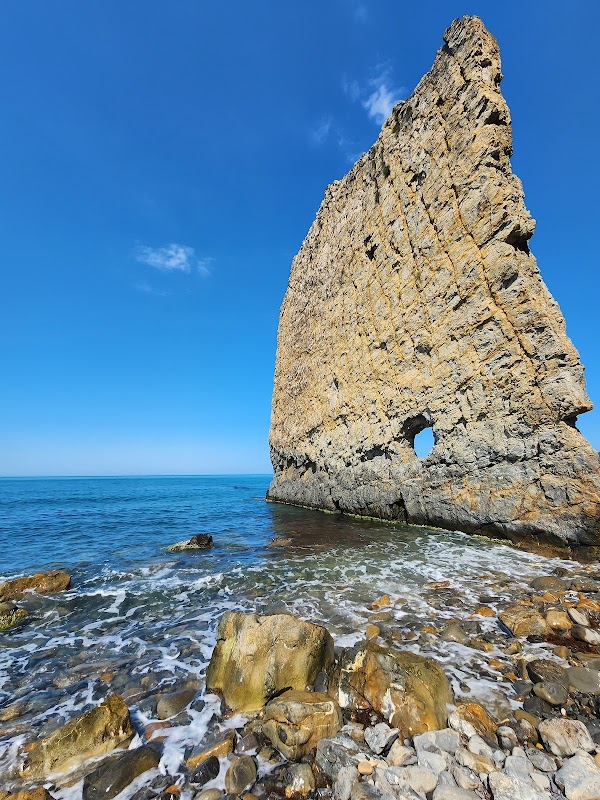
Exploring the Black Sea Apple Festival in Gelendzhik: An Adventure of Taste and Tradition
The Black Sea Apple Festival in Gelendzhik offers a unique fusion of nature, culture, and flavor along Russia’s southern coast. Visitors can explore sunlit orchards, taste local apple varieties, and enjoy immersive outdoor experiences with stunning coastal views.
Wear Proper Footwear
Choose sturdy, comfortable shoes with good grip to handle uneven orchard terrain and light hiking trails nearby.
Stay Hydrated
Bring enough water, especially if visiting in warm months from July to September, as sun exposure can be strong.
Arrive Early
Visit during morning hours to enjoy cooler temperatures and fewer crowds for a more relaxed exploration.
Pack a Light Snack
Though apples and local foods are available, carrying light snacks helps if you plan to explore beyond the festival grounds.
Exploring the Black Sea Apple Festival in Gelendzhik: An Adventure of Taste and Tradition
Each year, the Black Sea Apple Festival in Gelendzhik, Krasnodar Krai, invites visitors to engage with an authentic blend of culture, nature, and agriculture along the Black Sea coast. This event offers more than just ripe fruit—it’s an adventure into the heart of a community where apples are celebrated for their heritage, flavor, and resilience. Surrounded by the deep green folds of nearby forests, the region's orchards stretch across gentle hills, each tree standing firm against coastal winds and bright skies.
Visiting during the festival means stepping onto paths dappled with sunlight filtering through apple branches heavy with fruit. The terrain is park-like and accessible, but uneven earth hints at the region’s rugged charm. Walkers and families alike can savor crisp bites of fresh apples under a sky occasionally brushing gray with sea breezes. The festival’s setup balances lively markets featuring local crafts and food stalls with quiet corners for scenic views across the Black Sea, the water’s surface rippling as if daring you to dive into the experience.
Practical planning makes all the difference: wear sturdy footwear suited for dirt and occasional rocky patches; carry water to stay hydrated in the often sunny weather, especially from July through early September. Allocate around 2-3 hours to move comfortably through the festival grounds and orchards, with options to hike nearby trails for panoramic views of Gelendzhik’s coastline and the surrounding Caucasus foothills. Arrive early for cooler temperatures and less crowded spaces, making your visit both comfortable and immersive.
The Black Sea Apple Festival also offers a chance to learn about the agricultural history of Krasnodar Krai, where apples are not just a crop but a symbol of community effort and seasonal cycles. Engage with local farmers, taste rare apple varieties unique to this part of Russia, and watch demonstrations on traditional cider pressing. The festival's pulse is as steady as the ancient trees giving shade and sustenance, each moment inviting respect for the natural forces shaping this land.
Prepare your camera for shots of vibrant fruit clusters against bright sky backdrops and candid moments of local artisans at work. Be mindful of the environment; take only pictures, leave only footprints. If time allows, extend your adventure to nearby trails such as the Malaya Sotka Path or the Chudo-Kamen Gorge where the Black Sea breeze becomes a sharper companion over rugged terrain.
The Black Sea Apple Festival in Gelendzhik blends outdoor enjoyment with cultural discovery, creating a space for adventure both gentle and grounded. It’s a celebration fiercely itself, waiting for visitors ready to listen to the stories of land, fruit, and people.
Nearby Trips
All Adventures
Boat Charters
Water Activities
Adventures near Gelendzhik, Krasnodar Krai
Discover the unique and memorable adventures that make Gelendzhik, Krasnodar Krai special.
Frequently Asked Questions
When exactly does the Black Sea Apple Festival take place?
The festival typically runs from late August to early September, coinciding with the apple harvest season to showcase the freshest produce.
Are there hiking opportunities near the festival?
Yes, several gentle trails like the Malaya Sotka Path and Chudo-Kamen Gorge are accessible nearby, offering scenic views of the coast and forest.
Is the festival family-friendly?
Absolutely. The festival has easy walking paths, activities for children, and plenty of space for families to enjoy the natural setting and food tastings.
What local wildlife might I encounter at the festival or nearby?
Birds such as Eurasian Jays and Warblers are common in the orchards. Small mammals like hares might be spotted in adjacent wooded areas, especially early morning or dusk.
How accessible is the festival for travelers without a car?
Gelendzhik town is the nearest access point. Local buses and taxis can reach the festival grounds, but renting a car or arranging for transport in advance provides the most flexibility.
Are there any environmental practices in place at the festival?
The festival promotes waste reduction and encourages visitors to respect orchard areas by staying on marked paths and not picking fruit outside designated zones.
Recommended Gear
Supportive Walking Shoes
Necessary for navigating orchard soil and light trails safely without slipping.
Reusable Water Bottle
Keeping hydrated is crucial, especially in warm months during busy festival days.
Sun Protection (Hat / Sunscreen)
Protect yourself from strong sun between the open orchard spaces and the Black Sea coastline.
Light Backpack
For carrying water, snacks, and festival purchases comfortably during your visit.
Local Insights
Hidden Gems
- "A lookout at Cape Tolstyi with unobstructed Black Sea views away from crowds"
- "A small family-run orchard offering traditional apple cider tastings"
- "Old Soviet-era stone steps leading to a quiet forest glade near the festival grounds"
Wildlife
- "Eurasian Jays, Warblers, Hares, occasional fox sightings in nearby forest edges"
History
"Gelendzhik's apple cultivation dates back centuries, with the festival honoring both traditional farming methods and the region’s role as a key fruit-growing area along the Black Sea coast."
